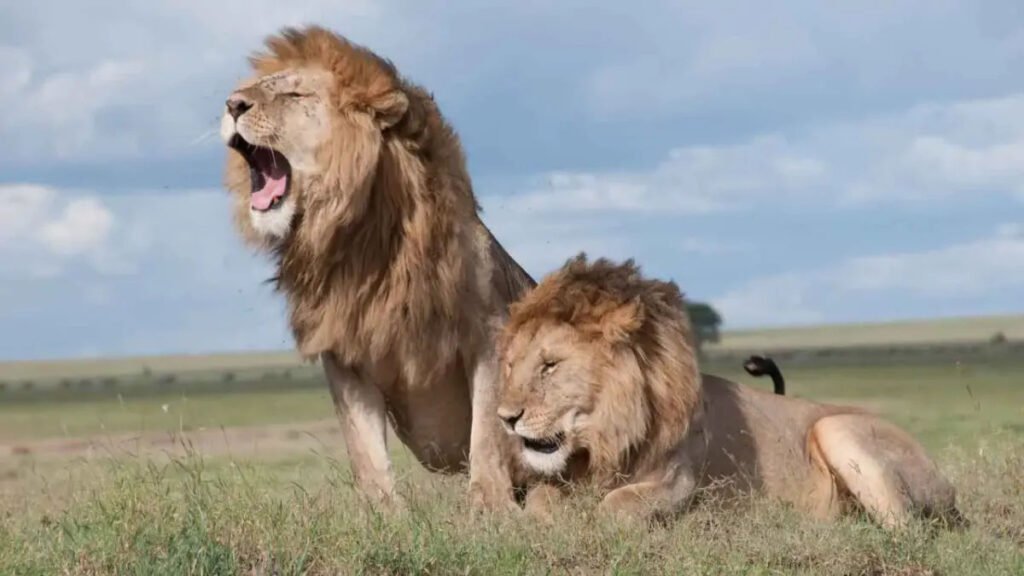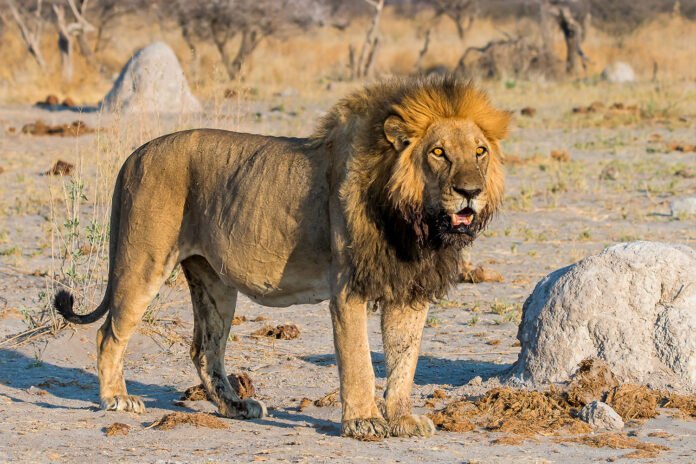Welcome to the wild world of lions, where survival hinges on primal instincts and the hunt for food reigns supreme. These majestic beasts are known for their ferocious appetites and dominant presence in the animal kingdom. But have you ever wondered how long a lion can actually go without a meal? Join us as we delve into the intriguing realm of a lion’s diet and explore just how resilient these creatures truly are when faced with scarcity.
Factors That Affect a Lion’s Survival Without Food
Lions, known as apex predators in the wild, possess remarkable adaptations that aid their survival. When it comes to enduring periods without food, several factors come into play. One crucial element is the body size and muscle mass; these majestic felines require substantial energy reserves to sustain themselves during times of scarcity. Additionally, age plays a significant role – younger lions tend to have more resilience than older ones due to their vitality and ability to withstand extended fasting periods.
Furthermore, environmental conditions like drought or competition for prey can impact a lion’s ability to find sustenance. Lions are also opportunistic hunters; their hunting success rate influences how long they can go without food. In times of abundance, they may store excess nutrients in fat reserves for leaner times ahead. The interplay between biological factors and external circumstances shapes a capacity to survive without food in the unforgiving African savanna.
Longest Recorded Time a Lion Has Gone Without Food
Lions, known for their strength and resilience, have surprised researchers with their ability to endure extended periods without food. The longest recorded time a lion has gone without eating is truly remarkable. In the wild, these majestic creatures can survive up to two weeks without a meal!
During times of scarcity rely on their fat reserves to sustain them through lean periods. This unique adaptation allows them to conserve energy and stay strong even when food is scarce.
see: freieinfos
In one extraordinary case, a lioness in the Serengeti National Park went an astonishing three weeks without food! Despite facing extreme hunger, she managed to persevere and eventually made a successful kill.
Such incredible feats showcase the incredible survival instincts of in the face of adversity. Their ability to thrive in challenging conditions highlights the true essence of these magnificent predators.
Real-Life Examples of Lions Surviving Long Periods Without Food

Have you ever wondered how resilient can be when it comes to surviving without food for extended periods of time? Let’s delve into some real-life examples that showcase the incredible adaptability of these majestic creatures.
In the harsh African savannah, a pride once endured a severe drought that lasted several months. With prey scarce and water sources drying up, these had to rely on their hunting skills and strategic teamwork to make it through this challenging period. Despite losing weight and appearing visibly weaker, they managed to survive by conserving energy and becoming more selective in their hunting efforts.
Similarly, in another instance, a lone was separated from her pride due to territorial disputes. Without the support system of her fellow pride members, she had to fend for herself in unfamiliar territory with limited access to food. Through sheer determination and perseverance, she adapted her hunting techniques and scavenged for sustenance until she eventually reunited with her pride.
These compelling anecdotes highlight the remarkable resilience of lions when faced with adversity in their quest for survival. Their ability to endure prolonged periods without food is a testament to their instinctual prowess as apex predators in the wild.
How Lions Adapt to Survive During Times of Scarcity
Lions are apex predators known for their hunting prowess and ability to thrive in challenging environments. During times of scarcity exhibit remarkable adaptability to ensure their survival. One key way they adjust is by becoming more opportunistic hunters, targeting a wider range of prey species beyond their usual preferences.
Additionally, lions may travel longer distances in search of food, utilizing their keen sense of smell and hearing to track potential meals over vast territories. They also display patience and strategic planning when stalking prey, waiting for the perfect moment to strike with maximum efficiency.
Furthermore, lions have developed social structures within prides that help facilitate successful hunts during lean times. Cooperation among pride members increases the likelihood of securing a kill and ensures that all individuals have access to much-needed sustenance.
These adaptive behaviors enable to endure periods of scarcity and maintain their status as skilled survivors in the wild.
Conclusion
Lions are incredibly resilient animals that can survive for an extended period without food. Their adaptation to hunting strategies and ability to conserve energy during times of scarcity enable them to endure challenging conditions in the wild. Understanding how lions navigate periods without food gives us a glimpse into their remarkable survival instincts and the impressive capabilities of these majestic creatures in the African savannah.


